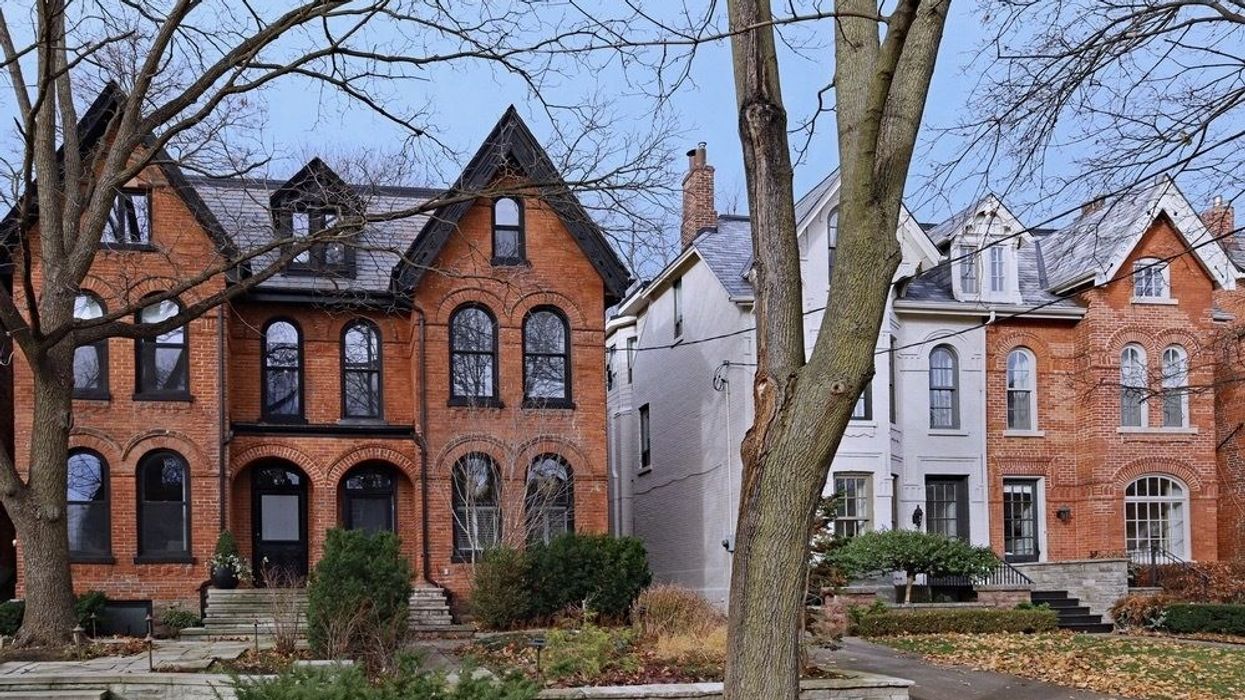Beginning early next year, Toronto homeowners with a vacant property will have to cough up an extra 1% tax on their home. But how that tax is being implemented has raised concerns for some.
The City of Toronto voted in December 2020 to create the tax, payable beginning in 2023, as a means to encourage homeowners to put their vacant properties on the rental market. Homeowners whose property is not their primary residence and is vacant for more than six months in the preceding calendar year, will be hit with a tax equivalent to 1% of their home's current assessed value. Exemptions are granted under certain circumstances, including repairs, renovations, and the death of an owner.
How exactly the City would track which homes are vacant was initially unclear, but a subsequent update stated that every residential property owner in Toronto will be required to declare the status of their property -- or properties -- every year. Based on these mandatory, self-reported declarations, the City of Toronto will determine whether a homeowner pays the tax or not.
The setup has received push back from some, with skeptics saying the honor-based system will allow vacant homeowners to easily dodge the tax. Among them was John Pasalis, President of Toronto-based brokerage Realosophy Realty, who took to social media to speak out against the tax's implementation, calling it "a waste of time and money."
"Given that Toronto has done very little to police their Airbnb rules, I can't imagine the vacant home tax being any different than that," Pasalis wrote.
Other methods of determining vacancy status were initially considered, a spokesperson for the City of Toronto confirmed to STOREYS. These included self-identification reporting where property owners would "self-determine if their property meets the criteria of vacancy and if it does, they would report this status to the City for the purpose of the tax." This model, the City says, would have avoided the need for all property owners to file a declaration. Another method that was considered, but ultimately decided against, was a complaints-based approach.
But even under the mandatory, self-reported system, the City will be looking for bad actors who file false declarations. A November 2021 report from City staff said that a $3.1M operating budget would be needed to maintain the tax, which would include salaries for 25 staff members. The majority of these staff members, the City spokesperson said, would be assigned to ensure compliance and perform audits.
Homeowners found to have filed falsified declarations will be subject to a fine of $250 to $10,000.
"In consultation with the City of Toronto's Legal Services Division, fines will be applied on an escalating basis depending on the severity and frequency of the offence(s) committed by the declarant," the City spokesperson said.
Owners who fail to file their declaration by the deadline, set at February 2, 2023, will have their properties classified as vacant and be subject to the tax. With the online portal for declarations opening in mid-December, homeowners will have less than two months to file.
Toronto's model appears to be following the blueprint of Vancouver's Empty Home Tax, which has seen relative success since its implementation in 2017. Between 2017 and 2020, Vancouver saw a 26% reduction in vacant homes and brought in nearly $90M in revenue, according to a City report.
Noah Sarna, a tax lawyer who has practiced in both Vancouver and Toronto, notes that Vancouver typically audits 4-5% of homes every year -- a high audit rate for any tax, he says -- and expects Toronto to meet similar targets. But in an analysis of vacant home taxes in Canada, Sarna highlights other issues with implementation that Vancouver has made, and that Toronto is on track to repeat.
New owners, Sarna writes, are at risk of inheriting a former owner’s tax liability. He points to a 2020 lawsuit filed in Vancouver where a buyer sued the seller of a home after the seller failed to file a declaration for the previous year, leaving the new owners responsible for the tax.
"The sale closed before the end of the declaration window, so the bylaw deemed the property vacant," Sarna explains. "The sellers, although found to be liable for the tax, reasonably believed that after the closing they were no longer allowed to make the declaration and assumed, at that point, that the declaration was solely the buyer’s responsibility."
But the most common issue with Vancouver's introduction of the tax has been builder-related issues.
"Unfortunately, the problems with Vancouver’s version of the exemption, both the original and current iterations, have been imported by Toronto and Ottawa," Sarna writes.
Toronto's by-laws specifically require that exemptions for builders will be allowed given that “all requisite permits have been issued for the repairs or renovations." Toronto, however, is not known to be quick when issuing permits, potentially leaving owners with an unintentionally vacant property.
"This ambiguity will likely cause owners and cities to fall on opposite sides of an interpretive issue," Sarna writes. "Owners will believe that a permit application filed before the midpoint in the year is sufficient. Cities will insist that permits be granted by then."
If Toronto's tax continues to follow in Vancouver's footsteps, it's likely that it won't remain at 1% for long. Vancouver has seen stepped increases in its Empty Home Tax, with council voting earlier this year to raise the tax to 5%.





















